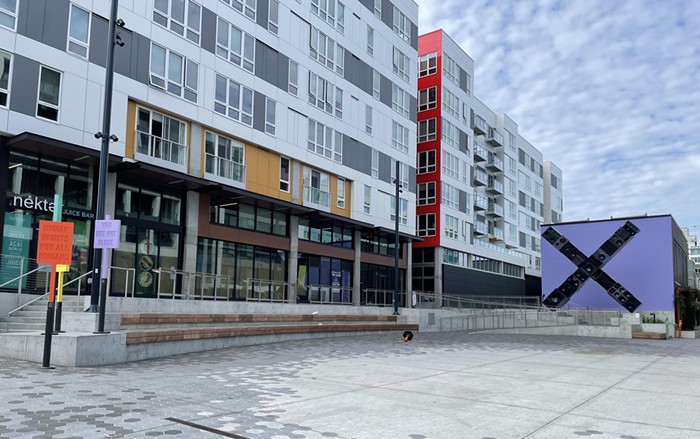This month, Gov. Jay Inslee signed a bill that requires Washington schools to incorporate into lessons the history and contributions of people from marginalized groups–including LGBTQ people, people of color, and people with disabilities.
Under Senate Bill 5462, the Washington State School Directors Association, with help from the Office of the Superintendent of Public Instruction, must review and update its model policy and procedures on course design and the selection of instructional materials by June of 2025.
By October of next year, public and charter schools will have to amend their policies to align with the model policy, which must include screening criteria to identify bias against protected classes in learning materials. Washington already requires schools to teach about colonialism and slavery from marginalized perspectives, but this is new, and it could manifest in a few different ways across the school curriculum, according to bill sponsor Marko Liias, a state senator representing Edmonds.
For example, a theoretical problem in a math class could include two moms figuring out how many apples to buy. Science teachers could include lessons about the queer astronaut Wendy Lawrence, or about the father of theoretical computer science and artificial intelligence, Alan Turing, a British man who was later prosecuted and chemically castrated for homosexuality.
The purpose of the bill is not to create new courses on marginalized perspectives but to inject diversity into the curriculum where it makes sense. Liias said he hopes districts would tailor inclusive curriculum to represent the diversity in their area. In Central Washington, that might mean discussing the experiences of farmworkers and migrants. Other parts of the state may choose to highlight an Indigenous group or faith tradition in the area. Liias calls it a “both/and” approach that uplifts the LGBTQ community while being broadly inclusive.
Despite this bill not only involving LGBTQ people or history class, it has been branded in Washington as the LGBTQ history bill, and it has drawn predictable conservative criticism.
State GOP Chair Jim Walsh tweeted on x.com that it was “unrealistic of Olympia leftists to expect those struggling schools to teach effectively a narrow subset of history.” Brian Noble, director of the religious conservative Family Policy Institute of Washington, said in an interview with KOMO that his organization opposed the legislation because it opposed the sexualization of children.
Liias said that the other side “unfortunately reduces queer people to the sexualized version of ourselves.”
“This isn't like a sex ed lesson,” he said. “This is just about humanity and diversity and people who are interesting and different and bring all of these identities to the table.”
To the Washington conservatives online threatening to pull their children out of public school over the existential threat of learning, LGBTQ history is just history. Gay people did not materialize, bricks in hand, from the doorway of the Stonewall Inn in 1969.
Human beings have engaged in same-sex relationships and have crossed gendered boundaries since antiquity, and some of those people were important. Concepts of gender, which are not static across contemporary cultures or the history of humankind, changed and shifted through time. Incorporating multiple perspectives enriches a person’s knowledge of the past and can be transformative to a child’s understanding of themselves and those around them. In the case of LGBTQ people, straightforward history combats persistent claims that gay and trans identities are a fad.
Gwen Whiting, head exhibitions curator at the Washington State Historical Society in Tacoma, co-curated Crossing Boundaries: Portraits of a Transgender West at the Washington History Museum in 2021. Whiting said when we don’t talk about queer history or communities of color, we are not providing a true history, or providing an opportunity for people to connect with history outside a generally accepted narrative.
“Just because you didn’t read it in a history book doesn’t mean that it didn’t happen,” she said. “It doesn’t mean those communities didn’t exist. They were very much present. It’s all about who is telling the story.”
Data suggests that LGBTQ-inclusive lessons lead to greater safety and acceptance in schools. A 2021 University of Texas paper that reviewed existing research on strategies to support LGBTQ youth in schools noted a consistent body of evidence supporting that inclusive education, along with Gay-Straight Alliances and training for school staff, fostered a feeling of safety among queer students. Students who said they have learned about LGBTQ issues at school reported less bullying.
They were also more likely to report classmates somewhat or very accepting of LGBTQ people, higher grades, higher self-esteem, lower levels of depression, and a lower likelihood of suicidal ideation within the previous year. Those kids were more likely to plan for college, too.
A 2021 national school climate survey from the LGBTQ advocacy group GLSEN found that queer students in schools that taught LGBTQ-friendly lessons were less likely to experience bullying, hear homophobic and transphobic comments at school, or skip class for safety and comfort reasons within the month they were surveyed.
The survey suggests LGBTQ-inclusive education is still uncommon. Only 16% of students surveyed received any instruction that included positive representations of LGBTQ people, issues, and topics, which is only slightly more than the 14% who said they’d been taught negative content about LGBTQ topics. With SB 5462, Washington becomes the seventh state to mandate LGBTQ-inclusive education, along with Oregon, California, Colorado, Nevada, Illinois and New Jersey.
The opposite seems true in states that have passed laws restricting LGBTQ student rights and education. A Washington Post analysis found that the number of reported hate crimes on K-12 campuses have increased dramatically since Republicans began their legislative crusade. The 28 states that curbed the rights of trans students and limited classroom discussion about gender and sexuality saw the steepest rise in crimes.



















